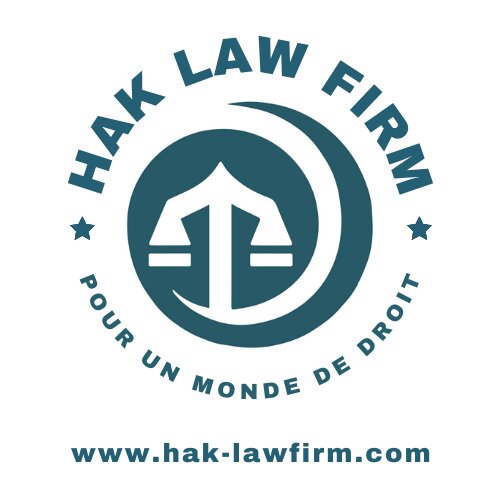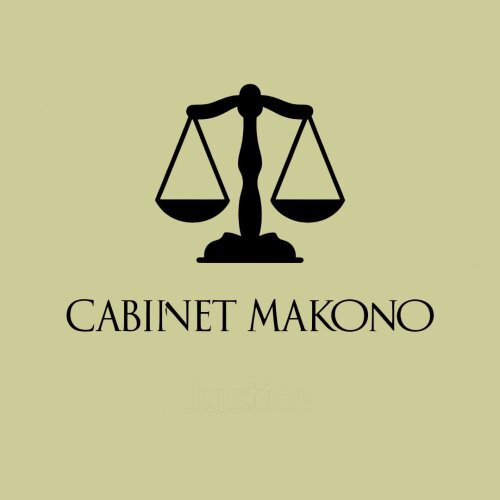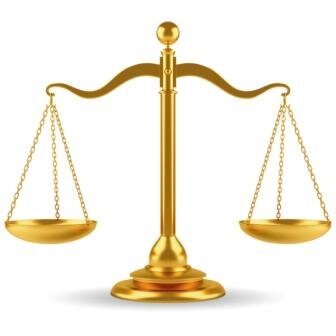Best Accounting & Auditing Lawyers in DR Congo
Share your needs with us, get contacted by law firms.
Free. Takes 2 min.
Or refine your search by selecting a city:
List of the best lawyers in DR Congo
About Accounting & Auditing Law in DR Congo
Accounting and auditing in the Democratic Republic of Congo (DRC) are governed by a framework of regulations aimed at ensuring financial transparency, accountability, and protection against fraud. The DRC has adopted the OHADA (Organisation for the Harmonization of Business Law in Africa) Uniform Act on accounting, which is part of a broader legal harmonization effort among Francophone African countries. This act sets out uniform accounting principles and standards that businesses must adhere to. Compliance with these regulations is essential for companies operating in the DRC, as it ensures reliable financial reporting and auditing practices.
Why You May Need a Lawyer
Legal assistance in accounting and auditing may be required for various reasons in the DRC. Common situations include:
- Setting up and structuring businesses to ensure compliance with local and international accounting standards.
- Resolving disputes over financial reporting, misstatements, or errors in audit reports.
- Dealing with tax audits and minimizing legal risks associated with tax compliance.
- Legal interpretation of complex financial regulations and standards.
- Ensuring that cross-border transactions comply with both local and international laws.
- Fraud investigation and prevention in financial reporting and operational audits.
- Guidance and representation in regulatory investigations or litigation relating to financial misconduct.
Local Laws Overview
Key aspects of local accounting and auditing laws in the DRC include:
- OHADA Uniform Act: Establishes uniform accounting standards and procedures for bookkeeping, preparing financial statements, and auditing in member states including DRC.
- Tax Code: The Congolese Tax Code stipulates financial reporting requirements, tax liabilities, and related penalties for non-compliance.
- Anti-Money Laundering Laws: Require stringent auditing processes to identify and report suspicious financial activities.
- Company Law: Outlines the mandatory requirements for financial transparency and disclosure among registered businesses.
- Auditing Standards: Compliance with International Standards on Auditing (ISA) as well as local standards that govern external audits is required.
Frequently Asked Questions
What organizations oversee accounting and auditing practices in DRC?
In the DRC, oversight is primarily conducted by the Conseil Permanent de la Comptabilité au Congo (CPCC) and the local tax authorities.
How often are companies required to conduct audits?
Audits are typically required annually for large companies, while small and medium-sized enterprises (SMEs) may have different requirements based on their size and industry.
What are the consequences of failing to comply with accounting laws?
Non-compliance may lead to fines, legal penalties, reputational damage, or even suspension of business operations.
Are financial statements required to be published?
Yes, certain companies, especially those publicly listed, must publish their financial statements in accordance with the law.
What are the main challenges in DRC's accounting environment?
Challenges include inadequate infrastructure, political instability, and evolving regulatory requirements.
How does the OHADA Uniform Act affect local businesses?
It provides a standardized accounting framework, which helps streamline cross-border trade and investment within member countries.
Can foreign businesses apply international accounting standards in DRC?
Yes, but they must also ensure compliance with local OHADA standards and regulations.
What role do auditors play during tax audits?
Auditors assist in reviewing financial statements to ensure they accurately reflect the company’s tax obligations and can represent businesses during tax audit proceedings.
Are there specific audit requirements for non-profit organizations in DRC?
Yes, non-profit organizations also need to provide audited financial statements, although the criteria may vary compared to for-profit entities.
How are accounting professionals certified in DRC?
Professionals must meet the qualifications set by the accounting and auditing regulatory bodies and usually require passing specific examinations.
Additional Resources
Here are some resources that can provide further assistance:
- Conseil Permanent de la Comptabilité au Congo (CPCC): Regulatory body for accounting standards.
- Ministry of Finance of the DRC: Offers guidance on compliance with national finance regulations.
- OHADA Secretariat: Provides documentation and publications on uniform acts including the Uniform Act on Accounting.
- Local chambers of commerce: Can provide assistance and advice for business regulations and compliance.
Next Steps
If you require legal assistance in accounting and auditing in the DRC:
- Consult with a law firm specialized in accounting and financial law in the DRC to understand your legal obligations and rights.
- Engage with a certified public accountant or auditor to conduct a thorough review of your financial statements to ensure compliance.
- Contact local regulatory bodies for additional resources and guidance on specific compliance issues.
- Stay informed about any amendments to regional accounting laws and tax regulations that may affect your business operations.
Lawzana helps you find the best lawyers and law firms in DR Congo through a curated and pre-screened list of qualified legal professionals. Our platform offers rankings and detailed profiles of attorneys and law firms, allowing you to compare based on practice areas, including Accounting & Auditing, experience, and client feedback.
Each profile includes a description of the firm's areas of practice, client reviews, team members and partners, year of establishment, spoken languages, office locations, contact information, social media presence, and any published articles or resources. Most firms on our platform speak English and are experienced in both local and international legal matters.
Get a quote from top-rated law firms in DR Congo — quickly, securely, and without unnecessary hassle.
Disclaimer:
The information provided on this page is for general informational purposes only and does not constitute legal advice. While we strive to ensure the accuracy and relevance of the content, legal information may change over time, and interpretations of the law can vary. You should always consult with a qualified legal professional for advice specific to your situation.
We disclaim all liability for actions taken or not taken based on the content of this page. If you believe any information is incorrect or outdated, please contact us, and we will review and update it where appropriate.
Browse accounting & auditing law firms by city in DR Congo
Refine your search by selecting a city.
















